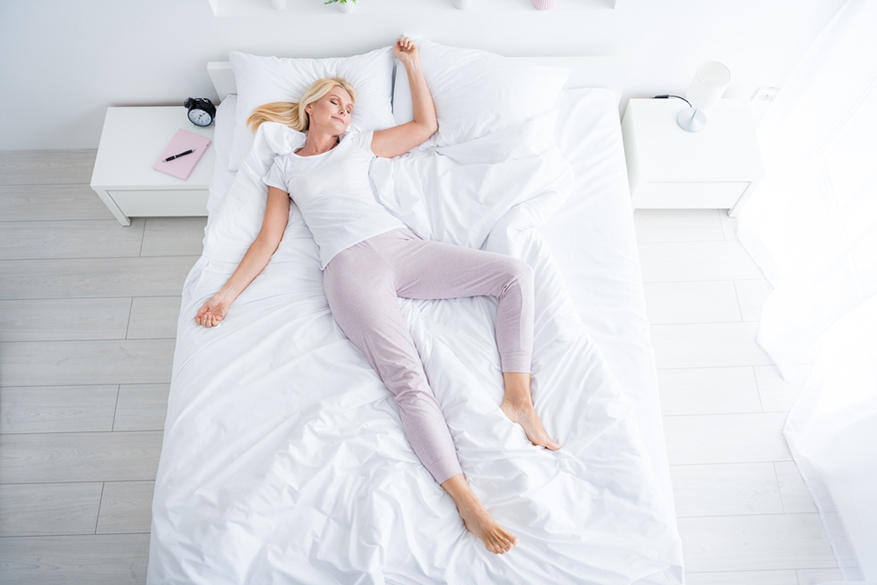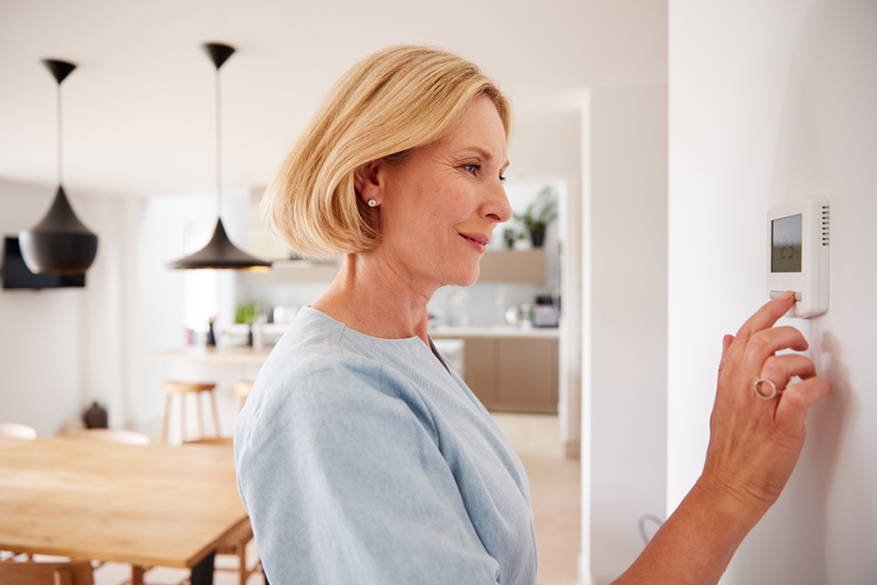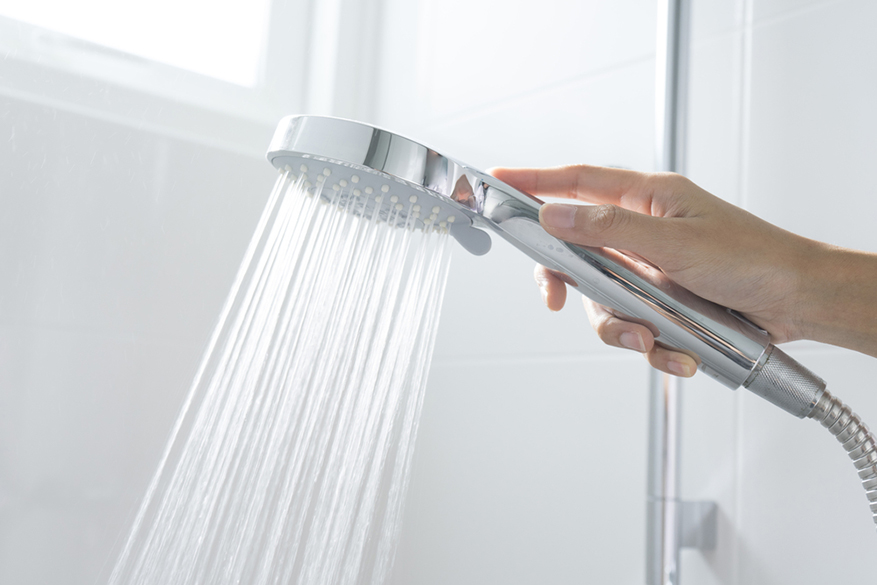
Menopause and Night Sweats: How to Better Manage Hot Flashes at Night
"I have night sweats and sometimes feel overheated" - D.A., a pre-menopausal woman.
After interviewing some women in our community, we realized menopausal night sweats are more common than you would think. As if the vaginal dryness wasn’t bad enough, menopause often triggers overwhelming hot flashes. And to make matters worse, they can happen in the middle of the night, waking you up (and keeping you up) when all you’d rather do is sleep. However, you don’t have to let them run your life any longer. Here are our six top tips to get menopause relief from night sweats:
Shop All Menopause Relief Products

By Roman Samborskyi / Shutterstock.com
1. Wear light, breathable layers.
Just like your daytime outfits, your nighttime pajamas can contribute to overheating and night sweats. When you are shopping, look for pajamas made out of cotton, silk, and other natural fibers. Polyester and satin (aka synthetic silk made out of polyester) will trap heat and sweat, worsening hot flashes. Choose layered pajamas so that you can take off some garments as you become overheated during the night. Loose silhouettes will allow air to circulate better, and you may prefer to wear shorts or a mid-length rather than pants to further contribute to cooling off.
2. Opt for cotton sheets.
Your sheets might also be making your menopause night sweats worse. Check the tag to see what they are made of. If they’re not 100 percent cotton, then you should consider replacing them with a new set that is. Be mindful of flannel sheets. While they are made of cotton, the fabric is woven and treated in a way that helps trap heat rather than venting it. Also check the material of your other bed linens, including blankets, quilts, duvet covers, mattress covers, and more. If you have cotton sheets but throw a fuzzy polyester blanket over them, that will still trap heat and contribute to night sweats.

By Monkey Business Images / Shutterstock.com
3. Regulate your thermostat.
Even when you’re not undergoing menopause, you really don’t need to keep your thermostat temperature as high during the night as you do during the day. That’s because you have the sheets and blankets on your bed to keep you warm! Lowering the temperature of your home also helps lower your body temperature, which in turn helps promote sleep. The exact temperature that you find most comfortable varies from person to person and season to season, though most doctors recommend keeping your home between 60 to 67 degrees Fahrenheit (15.6 to 19.4 degrees Celsius) for optimal sleep.
4. Run a fan or open a window.
Sometimes, you simply can’t lower your house temperature enough to achieve your desired coldness. Maybe you don’t have air conditioning, or your kids complain too much about freezing, or you’re trying not to spend so much on utility bills. Whatever your reason, you can lower the temperature of only your bedroom by running a fan or opening a window during the more temperate months (provided that your bedroom window is covered with a screen). If you don’t have a ceiling fan, invest in a large box or tower fan that can help circulate the air and cool you off.

By ben bryant / Shutterstock.com
5. Take a cold shower.
Some people swear by a warm shower before bed, but you’ll find a cool one much more beneficial for your night sweats. A cold shower gets rid of the sweat of the day and helps bring your body temperature down (which also contributes to better sleep). Not only that, but cold water is also really good for your skin because it doesn’t strip your moisture barrier as much as hot water does. Just be sure to skip drying your hair or any other activities that might cause you to become overheated after your shower.
6. Avoid hot and/or spicy foods and drinks.
This tip remains true no matter the time of day, and it’s especially relevant at the dinner hour. Spicy foods can contribute to hot flashes as well as nocturia and other menopause symptoms, so skip those before bedtime. (If you’re wondering “What is nocturia?” we put together a whole guide on it!) You should also watch out for food and drinks served at a high temperature, which can make you feel overheated. A cup of hot tea may be mentally soothing, but it could also trigger a hot flash, so it’s better to stick to cold or lukewarm items if you’re hungry or thirsty.
Follow these six tips to get your night sweats in check and to sleep better. If you’re struggling to get your menopause symptoms under control, be sure to check out our ongoing series of guides, which covers everything from menopause and incontinence to menopause and body odor.
Browse Our Entire Menopause Relief Collection